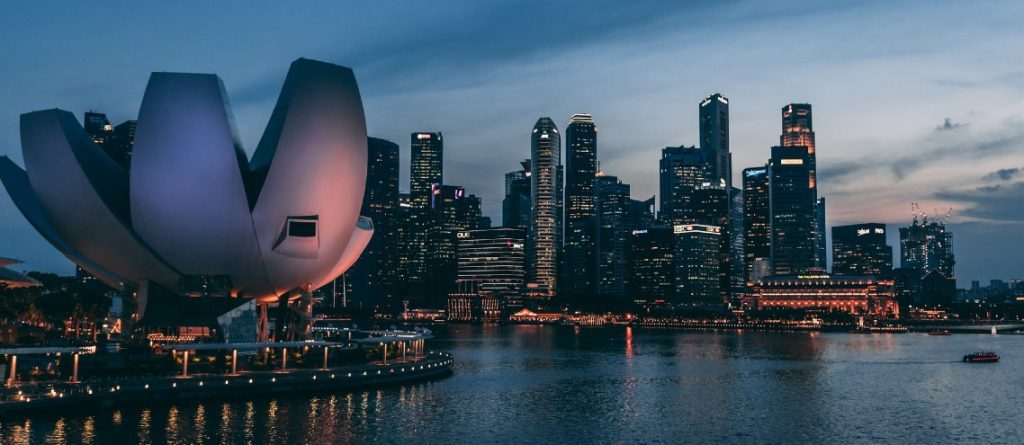Singapore Citizenship vs. Permanent Residence: What’s the difference and how do you apply? (Updated 2022)

Are you attracted to the vibrant cosmopolitan of Singapore? Perhaps you are drawn in by Singapore’s high quality of living and its well-deserved status as one of the best cities in Asia. It’s high time you consider staying. You have two options available: permanent residence and Singapore citizenship. What’s the difference and how do you know which one to go for? In this Pacific Prime Singapore article, you’ll see a comparison of benefits between Singapore citizenship and Permanent Residence. In addition, we’ll go through the application process for both so you’ll know what to expect.
Benefits of Singapore Citizenship
From healthcare and education to employment rewards, Singaporean Citizens (SC) enjoy a wealth of benefits. Here, you’ll find a quick rundown of several major benefits available to a SC.
1. Travel freedom
Singapore passport holders enjoy visa-free or visa on arrival access to a stunning 192 countries and territories. In fact, Singapore is ranked 2nd in travel freedom on the Henley Visa Restrictions Index in 2022.
2. Employment rewards
Most companies in Singapore prefer to hire citizens or PRs over foreigners since there is a lot less paperwork required. Interested in getting a work permit in 2022? Check out our article on the difference between work passes in Singapore and how to get yours.
3. Housing
Singaporean citizens aged 21 or above are eligible to buy and rent apartments from the Housing & Development Board (HDB). These include subsidized 2 to 5-room flats, and even executive flats and studio apartments developed by the HDB. You can also apply for loans at a concessionary interest rate from HDB to fund housing. On top of that, first-time buyers of these flats can enjoy housing subsidies such as the CPF Housing Grant for up to SGD $40,000. SCs can further enjoy subsidies when their home and neighborhood undergo various upgrading programs, and they can rent out their entire HDB flat.
4. Education
Primary school kids do not have to pay school fees, while secondary schoolers pay only SGD $5 and junior college students pay only SGD $6 per month in school fees, provided they are SCs.
All SC students are entitled to an Edusave account through which they’ll receive a yearly contribution from the government. This scheme also awards students who excel in academics and non-academic activities.
5. Healthcare
With the Medifund, the Singaporean government helps finance medical expenses for citizens in need. In addition, the Primary Care Partnership Scheme (PCPS) offers affordable healthcare for those without access to one of Singapore’s 18 polyclinics.
6. Leave benefits
All mothers may enjoy 16 weeks of paid maternity leave if their child is a SC. Also, parents who have worked for their employer for at least 3 months are entitled to 6 days of paid parental leave per year until the child turns 7.
7. Parenthood Incentives
As long as your child is a SC, he/she is eligible for the Baby Bonus Scheme. You can receive up to SGD $8,000 in cash gifts for your first and second child, and up to SGD $10,000 for the third and fourth child. To make infant care and childcare affordable, the government also provides subsidies of SGD $300 to $600. Also available are tax incentives for parenthood, which include Working Mother’s Child Relief (WMCR), and more.
Disadvantages of Singapore Citizenship
Despite the plethora of benefits, there are a few drawbacks to becoming a SC. First, Singapore does not allow dual citizenship. In other words, to be a citizen here means you must renounce all other citizenships you possess. Moreover, all male Singapore citizens are required to serve in the National Service for two years at the age of 18. Withdrawing all of your CPF savings in a lump sum would also require you to renounce your citizenship status.
Differences between Permanent Residence and Singapore Citizenship
Permanent Residents enjoy only a fraction of the benefits SCs are entitled to. Both PRs and foreigners pay a higher percentage of school and polyclinic consultation fees compared to SCs.
Your paid maternity leave duration is also subjected to the employment contract if your child or you aren’t a SC. Most importantly, you cannot vote as a PR. In terms of healthcare benefits, PRs are not eligible to access the Medifund for sick and needy Singaporeans. The PCPS is also open to citizens only.
Crucially, if a PR leaves Singapore without a valid Re-Entry Permit (REP), or if a PR’s REP expires when he/she is outside Singapore, that person’s PR status automatically and, with rare exceptions, irrevocably ends. Singapore’s Immigration and Checkpoints Authority (ICA) typically renews REPs for 5 years, subject to PRs having some actual residence, and economic or other relevant activity, in Singapore.
Similarities between Permanent Residence and Singaporean Citizenship
Similarly, second-generation male PRs must serve in the National Service upon reaching 18. PRs can also purchase and rent flats from the HDB. However, when the government is upgrading these flats, PRs have to pay in full for the features they have opted for. SCs only need to pay a fraction of the costs. To buy any private residential property, PRs must seek first approval from the Ministry of Law. Both PRs and SCs are eligible for the Central Provident Fund (CPF), a compulsory social security savings plan.
Applying for Singapore Citizenship
In this section, you can see whether you’re eligible for citizenship in Singapore, and how to apply for one.
Eligibility
You will be eligible for a Singapore citizenship as long as you meet any one of the criteria below:
You are 21 years old and above, and have been a Singapore PR for at least 2 years. You can also apply together with your spouse and any unmarried children aged below 21 either born to you or adopted by you.
You have been a PR for at least 2 years and have been married to a Singapore Citizen for at least 2 years.
You are an unmarried child aged below 21 born within the context of a legal marriage to, or have been legally adopted by, a Singapore citizen.
You are a PR studying in Singapore. Also, you have been residing in Singapore for more than 3 years. On top of that, you’ve passed at least 1 national exam (i.e. PSLE, GCE ‘N’/‘O’/‘A’ levels), or are in the Integrated Programme (IP).
You are a PR and an aged parent of a Singapore Citizen.
How to apply
To apply for Singapore citizenship, you need to prepare two things: application fees and required documents. Should your application be successful, you’ll also need to pay additional fees for your birth certificate and/or Singapore ID card. This entire process is done online through the Immigration & Checkpoint Authority (ICA) website.
Here’s a quick rundown of the list of requirements:
Required documents
Prepare certified true copies of any original documents. Remember to submit official translations if your documents are in languages other than English. The ICA accepts several types of translations. They must be provided by the embassy or notary public of the country that issued the document, or by the embassy or notary public in Singapore. Alternatively, you can get your documents privately translated as long as they are attested by the embassy or notarized.
Application fees
Below are the costs of the Singapore citizenship application at a glance. Check out the ICA website for more details.
Note: the Singapore Identity Card fee is applicable to new citizens aged 15 and above.
Types of Applicants
Application Fees
Certificate/Identity Card Fees (if application is successful)
Adult Permanent Resident (PRs) and Children of PRs
SGD $100
SGD $70 for your Singapore Citizenship Certificate
SGD $10 for a Singapore ID*
Children born overseas to Singapore citizen parents
SGD $18
SGD $10 for a Singapore ID*
All other children born overseas or locally
SGD $100
SGD $70 for your Singapore Citizenship Certificate
SGD $10 for a Singapore ID*
Application process
In a nutshell, here is what you can expect to go through in the application process.
Submit application and all of your required documents through e-Service. You’ll need a SingPass account to submit your application. Don’t have an account? You can apply via your sponsor’s SingPass account.
Citizenship applications usually take 6-12 months to process. However, the application for kids born overseas to Singapore Citizens only takes 2 months to process. You can check your application status update on MyICA.
If your application is successful, you’ll receive an Approval in Principle letter with your appointment date and time to register for your Singapore citizenship.
Applying for Permanent Residence
In this section, you’ll see whether you are eligible for permanent residence in Singapore and the application procedures.
Eligibility
You may be eligible to apply for permanent residence if you fit into one of the following categories:
Spouse of a Singapore citizen (SC) or a Singapore permanent resident (PR)
Unmarried child aged below 21 years old, born within the context of a legal marriage to, or have been legally adopted by, a SC or PR
Aged parent of a SC
Employment Pass or S Pass Holder
Student studying in Singapore
Foreign investor in Singapore
How to apply
To apply, you’ll need to prepare your required documents and application fees. Keep in mind that the list of required documents differs for each type of applicant. Please refer to the ICA website for more details.
Application process
Apply online with a valid SingPass account. You may use your sponsor’s SingPass or your own if you are an Employment Pass or S Pass holder. Are you a foreign investor in Singapore? In that case, apply for permanent residence under the Global Investor Programme. If you are a student, access the e-Service using your Foreign Identification Number (FIN) and the issuance date of your immigration pass. The processing time is generally 4 to 6 months.
Application fees
Next, pay a non-refundable application fee of SGD $100. If successful, you’ll need to pay SGD $20 for an Entry Permit, SGD $50 for a 5-year Re-Entry Permit, SGD $50 for an Identity Card, and SGD $30 for an Entry Visa (if you require one).
Secure international health insurance
Whether you’ve decided to apply for permanent residence or Singapore citizenship, you should protect yourself with international health insurance. No matter where you are in the world, you would want access to the best treatments and medical facilities. With expat health insurance, you can travel worry-free.
Backed by more than 20 years of experience in the broker industry, our team of insurance advisors are happy to help you compare plans in Singapore and select the ones that suit your needs best. Contact us today for a free quote and impartial advice!

![]() Serena is a content writer at Pacific Prime. She aims to demystify the world of insurance for readers with the latest updates, guides and articles on the blog. Serena believes in straight-forward and entertaining educational content.
Serena is a content writer at Pacific Prime. She aims to demystify the world of insurance for readers with the latest updates, guides and articles on the blog. Serena believes in straight-forward and entertaining educational content.
Outside of work, Serena spends her time buried in books and dreaming of her next travel destination.
![]()



